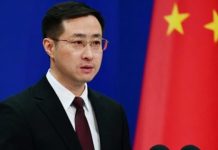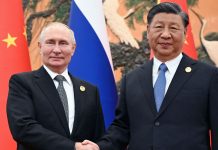DM Monitoring
PHNOM PENH: The Asia and Pacific High-Level Conference on Belt and Road Cooperation showed unity and solidarity among partner countries in dealing with the COVID-19 pandemic and restoring regional economies during and after the pandemic, Cambodian academics said here.
Being held virtually in Beijing, the conference brought together foreign ministers of Belt and Road cooperation partner countries, including Cambodian Deputy Prime Minister and Foreign Minister Prak Sokhonn. Kin Phea, director-general of the International Relations Institute of Cambodia, said the conference is organized at the right time and it will lay a solid foundation to call for the international joint efforts and actions to fight the COVID-19 pandemic.
He said the pandemic has no boundary and discriminates no one, so it’s crucial for all Belt and Road participating countries to work together closely to overcome this hard time based on the principle of multilateralism.
“Dealing with the havoc in the region and the world caused by COVID-19 is not the responsibility of any single country,” he told Xinhua. “Collective efforts, actions and measures are vital to effectively fight against this pandemic and to achieve socio-economic recovery as well as enhance partnership for sustainable and inclusive development.”
Phea said that China will play a more important role in the efforts to fight COVID-19 and in helping other countries rebuild their economies during and after the pandemic.
He believed that the COVID-19 vaccines will become public goods that are accessible to all nations.
“It’s hoped that the least developed countries will equitably receive more vaccines through humanitarian assistance from China and the World Health Organization’s COVAX facility,” he said.
Neak Chandarith, director of the Cambodia 21st Century Maritime Silk Road Research Center, said the conference is a timely and historic opportunity for participating BRI countries to strengthen inclusive multilateralism and enhanced partnership in an endeavor to jointly defeat these transnational health issues.






